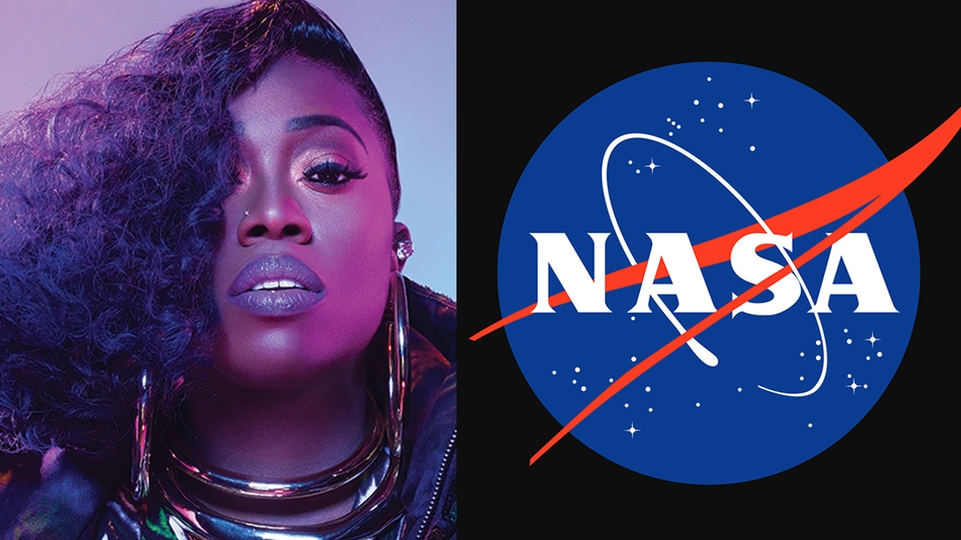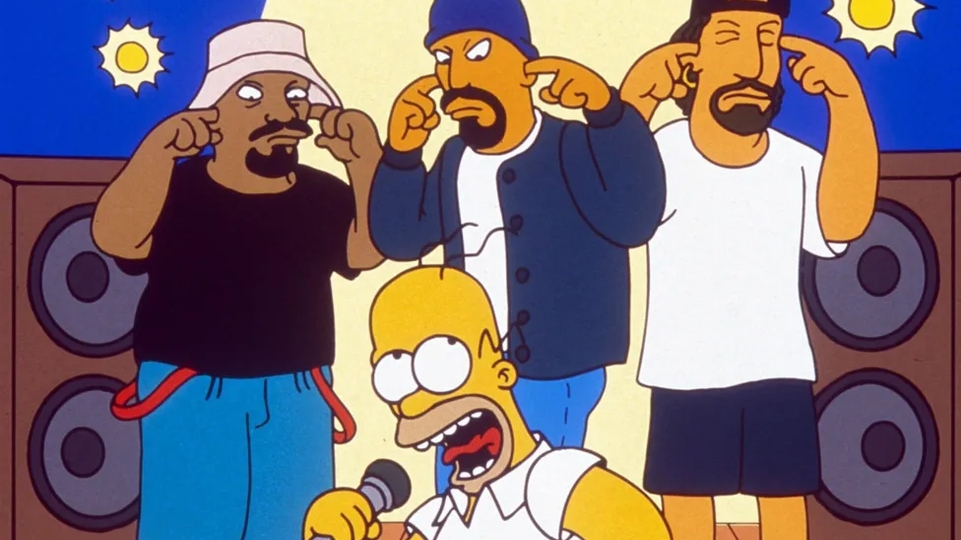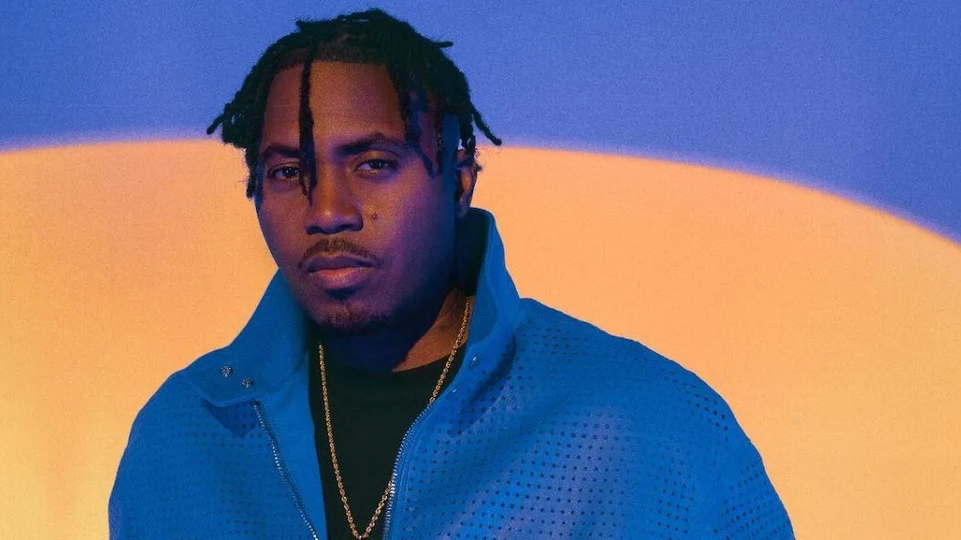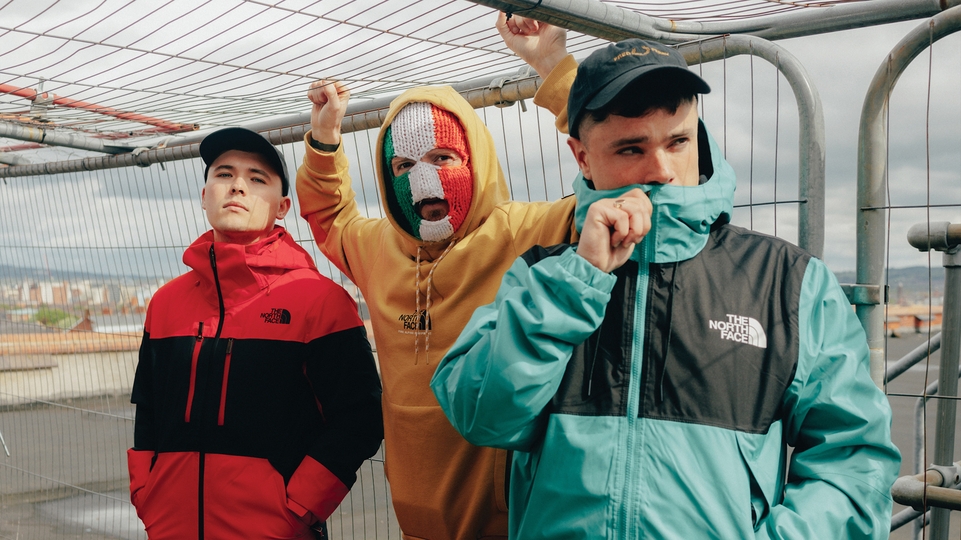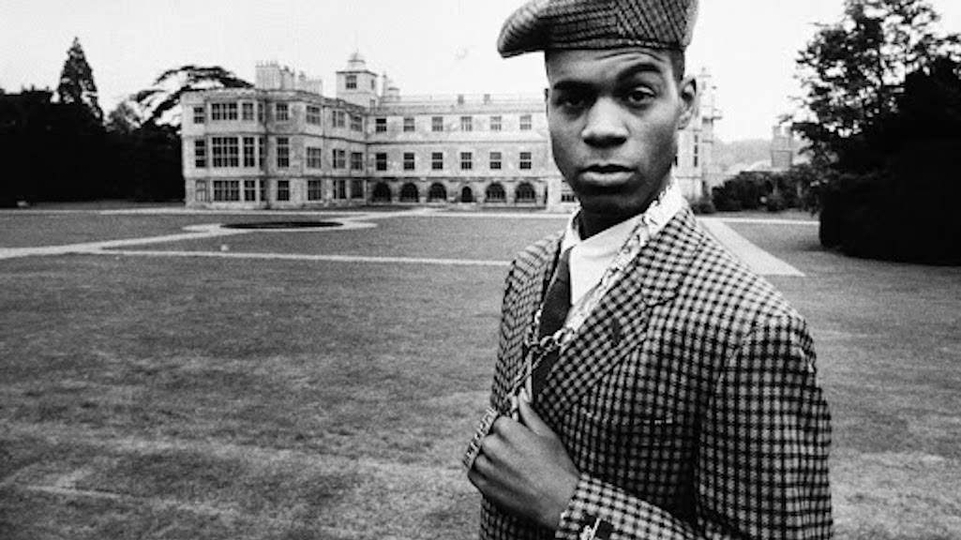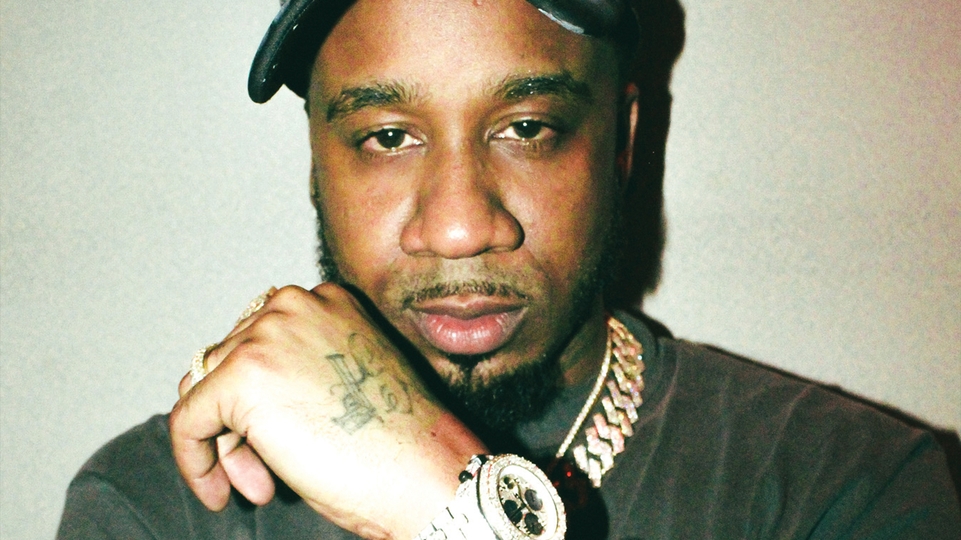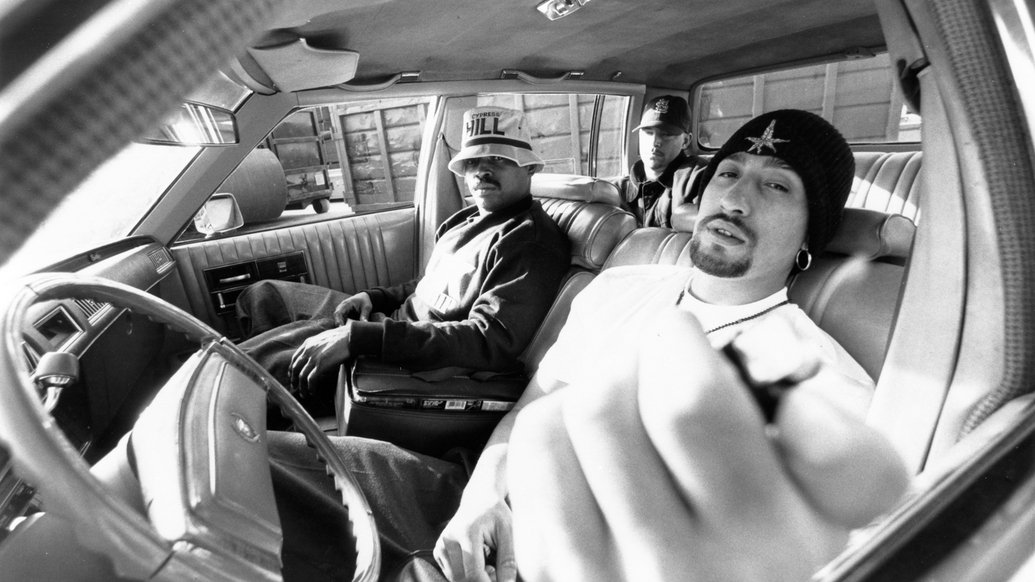
How Cypress Hill's 1991 debut turned the trio into hip-hop royalty
With inventive production and animated lyrics in Spanish and English giving unique takes on violence and, of course, weed, Cypress Hill's 1991 debut introduced them as a force to be reckoned with. Sam Davies speaks to them about how it all began
Sen Dog hated driving all the way to Gardena. But as B-Real was buying the weed, Sen begrudgingly agreed to drive him home after every session. Things were starting to get serious now. Muggs had convinced them to quit their day jobs, and they had a few good demos recorded.
As they pulled up to B’s apartment block, they saw a tedious yet familiar sight: police. They were completely clean — they’d smoked all their weed at the studio, and stopped carrying guns around months ago. But they knew they’d be searched. Had it been two years ago, maybe they would have found something. But not tonight. All they had was notepads filled with lyrics.
After running through all the usual questions — “Where you coming from? Are you gangbangers? IDs, licences, blah, blah, blah” — one of the feds picked up B-Real’s notepad. B saw the fed’s lips moving as he read the opening four lines of ‘Pigs’, the song they’d just been recording. This pig harassed the whole neighbourhood; this pig worked at the station; this pig he killed my homeboy; so that fuckin’ pig went on a vacation. The fed called his partner over, chuckling. “What’s this? You guys rappers or something?” “Yeah, we’re making an album,” B-Real replied. “Alright, well, look. I’m gonna let you guys go tonight,” said the fed. “But remember: this pig gave you a break. Now get the fuck outta here.”
B-Real laughs as he tells this story more than three decades later. He, Sen Dog and DJ Muggs became Cypress Hill, named after a street in South Gate, California, where the three of them used to hang out as teenagers. After years of practising, recording and re-recording demos, they released their eponymous debut album in 1991. ‘Pigs’ was the opening track, a comedic, cartoonish cousin to NWA’s ‘Fuck Tha Police’.
All three founding members of the band speak on separate phone calls. Now in their fifties, each of them is warm and forthcoming, true to the affable, stoned image that has won them many friends and admirers over the last 30 years. Just don’t ask Muggs what records he sampled on the album. But more on that later.
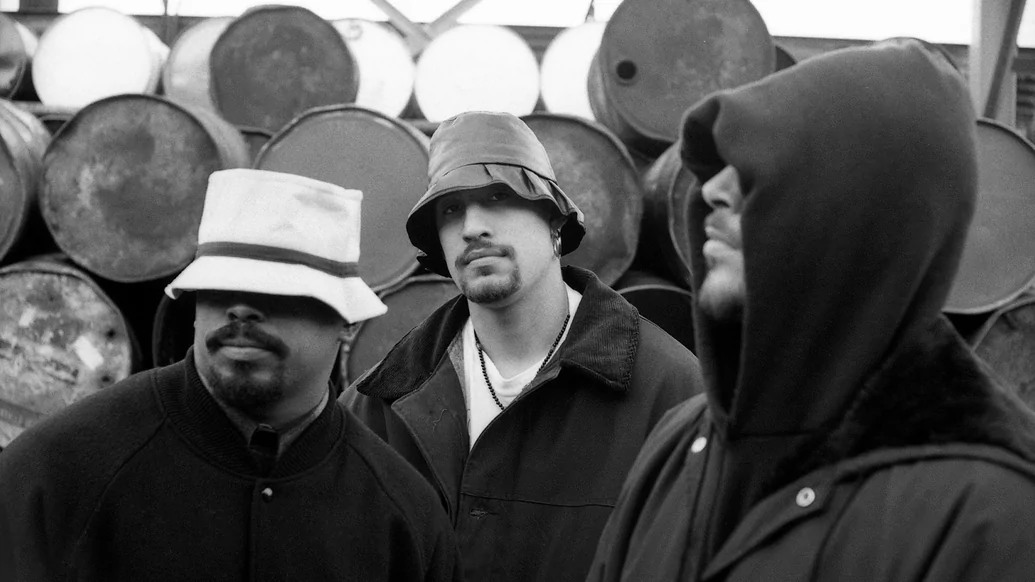

TRUE VOICE
‘Pigs’ wasn’t the first song they recorded for the album. That was ‘Real Estate’, the result of more than three years spent fine-tuning their sound. “That was the first song we did that sounded like a record,” says Muggs. He had been working with rappers Brett and Sean Bouldin as 7A3, releasing the album ‘Coolin’ In Cali’ in 1988. Sen worked in factories, warehouses and department stores, “whatever took more brawn than brain,” while also acting as hype man for his younger brother, the aspiring rapper Mellow Man Ace. B-Real sold drugs and, in his spare time, wrote poetry.
Following 7A3’s modest success, Muggs bought an SP-1200 drum machine for “like $3,000” and moved into a new place in the Hollywood Hills with his friend and fellow musician DJ Aladdin. He told Sen to quit his job. “I was like, ‘Woah, quit my job?’” says Sen, remembering that first drive to Hollywood. “I kept asking, ‘You sure about this?’ He kept telling me, ‘Yeah’. And then the last time I asked him, he goes, ‘If you ask me one more time, we’re gonna get out of this car and we’re gonna fight. Yes, I’m sure. Quit your job.’” B-Real, meanwhile, had largely given up on rapping.
“I went away, gang-banging and stuff like that,” he says. “Fortunately for me, they came back and got me.” He was brought in to help write for Mellow Man Ace’s first album, which Muggs was producing. “I fucking owe my life to those guys, because I’d be dead or in jail or crippled. I started getting used to being in the studio rather than on the street corner, and I never went back to the street after that. I got so addicted to being creative.” Though he was a talented writer, it wasn’t until ‘Real Estate’ that B realised his true voice.
“Muggs had given me a sit down,” he remembers. “We were always honest with each other, put our egos aside and stuff. He told me, ‘You gotta find something to cut through, because if not, we’re gonna just have Sen be the lead, and you write raps for him’.” They’d been listening to Rammellzee, a New York artist and rapper who used both a talking voice and a high-pitched squeak when he performed. “So I thought, ‘Maybe I could do that’.
We were writing ‘Real Estate’, and when it came down to lay it, I tried throwing my voice. And lo and behold, they liked it. I didn’t really necessarily like it, because it was kind of hard to deliver at first. But they liked it, and it really cut through the tracks. And I learned to like it.”
B-Real’s nasal voice, delivered as though through a lungful of weed smoke, made him one of mainstream hip-hop’s first oddball rappers, pioneering a style that was later emulated by The Pharcyde’s Bootie Brown and Griselda’s Westside Gunn. Danny Brown is another acolyte, epitomised on his 2016 track ‘Get Hi’, featuring B-Real. “When I chopped it up with him, he let me know we were an inspiration to him,” says B. “That’s how he crafted his style. I really love what he does, ’cause he’s done something similar to me, but made it his own. I love that we inspired a brother like Dan.”
Muggs sent ‘Real Estate’ and a few other demos to label execs. “After that song, everything started clicking,” he says. Chris Schwartz and Joe ‘The Butcher’ Nicolo, recent founders of the Columbia-owned Ruffhouse Records, liked what they heard. In 1990, Cypress Hill were signed.
BLOWING UP
Their first release was ‘The Phuncky Feel One’, a descriptively titled bop which the label chose as the single. “They thought they could go to the radio with it,” says Muggs. “We was like, ‘Fuck the radio. The radio don’t play the shit we like’. The radio wasn’t even playing Public Enemy, they was playing Jazzy Jeff & The Fresh Prince, MC Hammer, Vanilla Ice. So we was like, ‘We ain’t getting played on the radio’.”
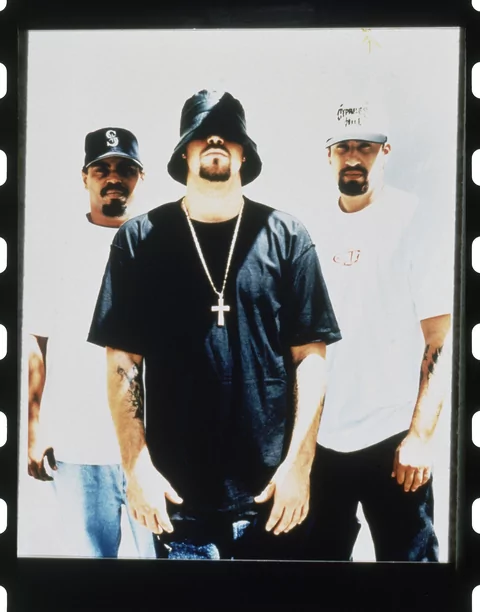
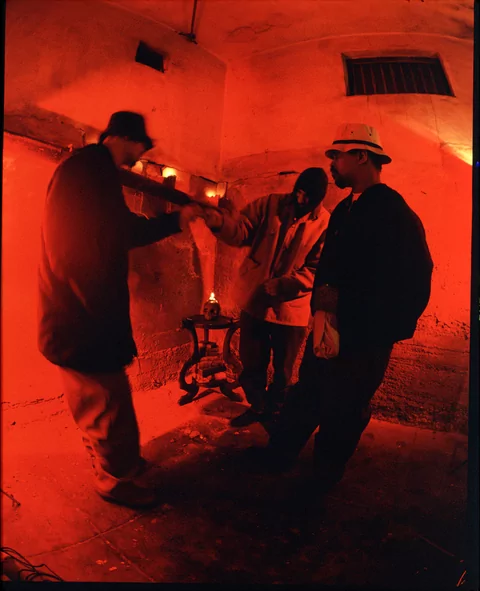
“Man... all these dudes that think they know what you’re sampling, they’re just wrong. I’m like, ‘Go fucking do something else man, tryna pick people’s samples apart, you’re a cornball. Don’t worry about what motherfuckers sample, ’cause you know some of these artists didn’t clear certain samples.’ Hip-hop was different back then. And you wanna go rat these guys out, 20 years later? This is part of the art man, it’s part of the secret” — DJ Muggs
The single failed to take off. But six months later, after the album had been released, New York DJs started flipping the single over and playing the B-side, a track called ‘How I Could Just Kill A Man’. ‘Kill A Man’ is Cypress at their best, B-Real and Sen Dog addressing America’s middle-class with a morbidly comedic portrayal of life in a low-income neighbourhood, an MC double act that could rock with the best. “Here is something you can’t understaaand,” warbles B-Real; then in comes Sen in deep baritone, using what came to be known as his ‘psycho-beta’ voice: “How I could just kill a man!” That’s followed by a twanging guitar line, a motif that made Muggs’s production every bit as wild as his frontmen.
Having moved to LA from New York aged 14, Muggs grew up on EPMD and Ultramagnetic MCs, as well as bands like Pink Floyd and Led Zeppelin. So while B and Sen rocked the unmistakably Californian look of bucket hats and basketball shorts, Muggs’s style was distinctly east coast. According to the internet, Muggs sampled Jimi Hendrix, James Brown and six other records on ‘Kill A Man’.
“Nah. I didn’t,” says Muggs. He sighs. “Man... all these dudes that think they know what you’re sampling, they’re just wrong. I’m like, ‘Go fucking do something else man, tryna pick people’s samples apart, you’re a cornball. Don’t worry about what motherfuckers sample, ’cause you know some of these artists didn’t clear certain samples.’ Hip-hop was different back then. And you wanna go rat these guys out, 20 years later? This is part of the art man, it’s part of the secret.”
A$AP Rocky referenced ‘Kill A Man’ on his 2010 track ‘Better Things’, as did Die Antwoord on 2009’s ‘In Your Face’. Rage Against The Machine covered it in 2000. When the song took off in 1991, rushing to No.1 on Billboard’s Hot Rap Tracks chart, it gave Cypress Hill a new lease of life. The band were hauled off their album tour to record a video in New York, where they met fans of the record in the Geto Boys, Scarface and Bushwick Bill.
LATIN LINGO
In early 1992, Juice hit cinemas, starring Tupac Shakur and featuring Cypress Hill on the soundtrack. With the band’s popularity continuing to soar and the album shifting tens of thousands of records each week, Ruffhouse soon wanted more singles. After the release of ‘Hand On The Pump’, a shotgun-toting party anthem with a hook written by 7A3’s Brett Bouldin, with ‘Real Estate’ on the flip, followed by ‘Pigs’, next was the sensational ‘Latin Lingo’.
Sen moved to LA from Cuba at the age of seven and had always spoken Spanish at home. But as he was also Black, he was tied to two different communities who didn’t always get along. “That actually made my existence in LA a bit of a difficult one when I was young,” says Sen. He went to school in an area with a big Mexican population. “Mexican kids want to fight. That’s what Mexican kids do. Then, when I got to junior high, there were a lot more Black kids in the mix. They thought I was an alien. I didn’t talk like a Black kid. I didn’t play basketball good. I didn’t talk to Black girls. And when young people don’t understand something, what do they do? They beat the shit out of it. Me and Mellow Man had to go through that every day.”
Mellow Man Ace had a hit in 1989, rapping in Spanish on the single ‘Mentirosa’. But Sen and B-Real, also of Cuban descent, were reluctant to be categorised as Hispanic rappers. “They try to mark you as a Latin artist,” Sen explains. “And we didn’t want to do that. We wanted to be like our heroes, Public Enemy and Run DMC and the Beastie Boys.” It wasn’t until Cypress recorded the album with Ruffhouse in Phildelphia that Joe The Butcher convinced Sen to record in Spanish. “But wait, they’re clownin’ on me ’cause of my language / I have to tell em straight up, it’s called Spanglish,” he raps on ‘Latin Lingo’, calling himself “the funky bilingual”. The song was massive among Hispanic hip-hop fans, paving the way for artists like Big Pun, Fat Joe and Cardi B to reach mainstream audiences rapping in both Spanish and English.
WEED
But above perhaps everything else, what made Cypress into hip-hop royalty was their affinity with weed. “When we first started Cypress, we weren’t even writing about weed,” says Sen. “It was Muggs that had the vision. He told me one day, ‘You and B-Real need to be the Cheech and Chong of hip-hop’. And I’m like, as I’m smoking a joint, ‘Why?’ He’s like, ‘You guys are the two biggest stoners that I know. You read High Times like it’s The Bible. You guys are great rappers, but you don’t have something that you’re known for. And it’s been under your nose the whole time!’” Sen gave B his first joint when they were teenagers. They’ve smoked every day since. “Back then we used to smoke tons,” Sen explains. “You know, because it was lesser quality weed. So you had to smoke more to get higher.”
“Kick it like a steel toe, real slow hits from the bong / Make me feel like Cheech and I’m kickin’ it with Chong,” B-Real crows on ‘Stoned Is The Way Of The Walk’, one of the last tracks they recorded for the album. With each new record — ‘Hits From The Bong’, ‘Legalize It’, ‘Jesus Was A Stoner’ — Cypress strengthened their bond with the plant. Now weed is legal in 18 American states. “I would say Cypress Hill was instrumental in that,” says B-Real. “We tried to break the stereotypes and let people know that it’s okay, that it’s actually good for you.
“In the ’40s, there was jazz that talked about cannabis, but they had to mask it. Then Peter Tosh, Bob Marley and the pantheon of legendary reggae artists were flying the flag for cannabis, but Bob is the only one who broke through the mainstream, and they were looking at him more for his humanity than cannabis. But we hit the mainstream in a way that was unexpected for us. And we were bringing that message into the mainstream with us. So this was maybe the first time that cannabis had hit the mainstream.”
In a 1995 episode of The Simpsons, set at a fictional music festival, a stage runner addresses a group of artists backstage: “Come on people, somebody ordered a London Symphony Orchestra... possibly while high... Cypress Hill, I’m looking in your direction.” An animated Muggs, Sen and B-Real then agree to play with the violinists, unleashing a rendition of their monumental hit ‘Insane In The Brain’, complete with orchestral backing.
The Simpsons appearance showed how big Cypress were. Their second album ‘Black Sunday’ debuted at No.1 in the US. But Sen knows his favourite. “That would be that first album,” he says. “That was our first baby. We nurtured that shit from the barrio, from the ghettos.”
All three are still making music, Sen and B-Real working without Muggs on new Cypress material, while Muggs has produced six albums with different artists in 2021 alone. Sen reels off a list of first album tracks — "Those jams were all hard as hell, man.”

